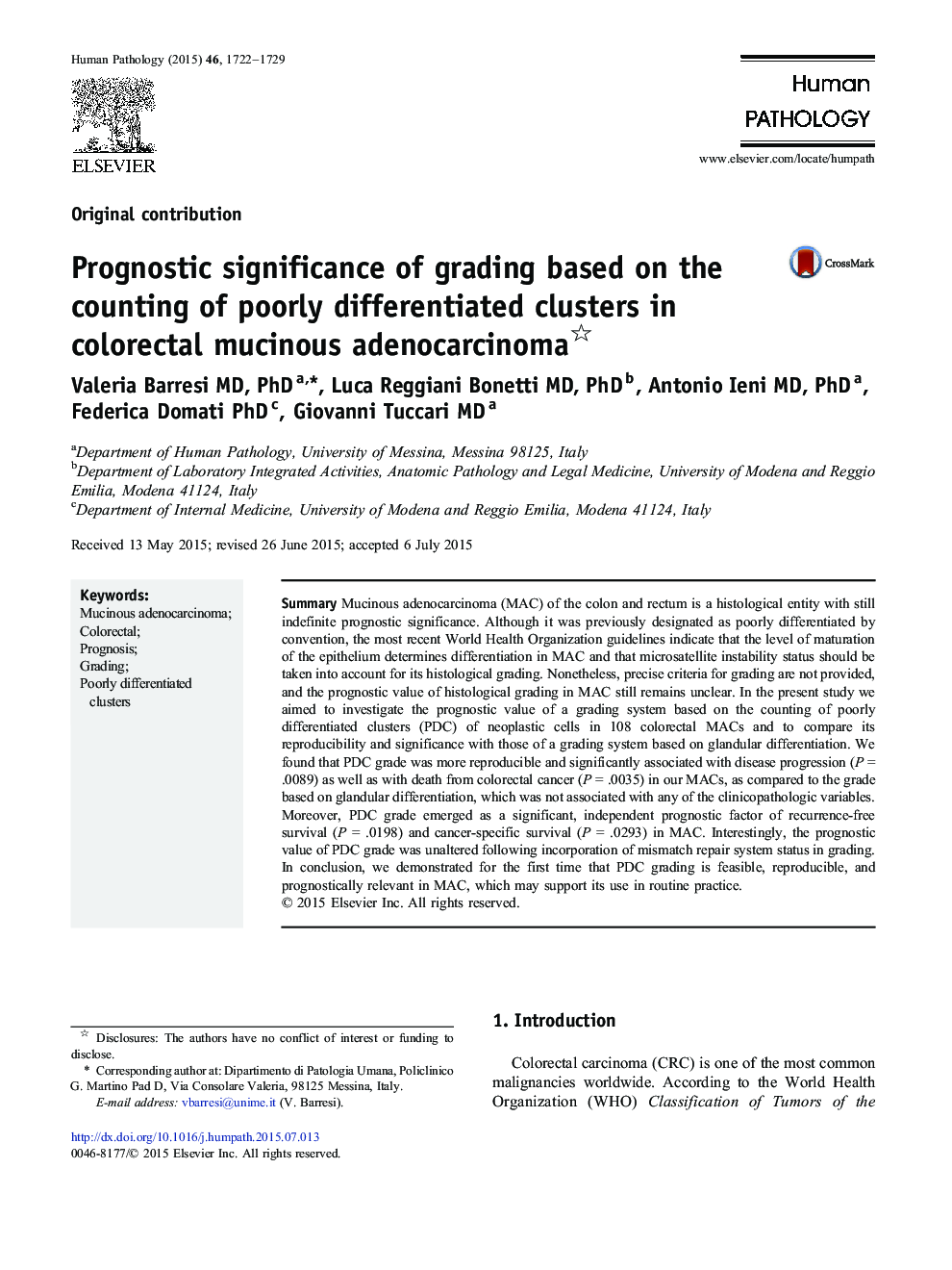| Article ID | Journal | Published Year | Pages | File Type |
|---|---|---|---|---|
| 4132877 | Human Pathology | 2015 | 8 Pages |
SummaryMucinous adenocarcinoma (MAC) of the colon and rectum is a histological entity with still indefinite prognostic significance. Although it was previously designated as poorly differentiated by convention, the most recent World Health Organization guidelines indicate that the level of maturation of the epithelium determines differentiation in MAC and that microsatellite instability status should be taken into account for its histological grading. Nonetheless, precise criteria for grading are not provided, and the prognostic value of histological grading in MAC still remains unclear. In the present study we aimed to investigate the prognostic value of a grading system based on the counting of poorly differentiated clusters (PDC) of neoplastic cells in 108 colorectal MACs and to compare its reproducibility and significance with those of a grading system based on glandular differentiation. We found that PDC grade was more reproducible and significantly associated with disease progression (P = .0089) as well as with death from colorectal cancer (P = .0035) in our MACs, as compared to the grade based on glandular differentiation, which was not associated with any of the clinicopathologic variables. Moreover, PDC grade emerged as a significant, independent prognostic factor of recurrence-free survival (P = .0198) and cancer-specific survival (P = .0293) in MAC. Interestingly, the prognostic value of PDC grade was unaltered following incorporation of mismatch repair system status in grading. In conclusion, we demonstrated for the first time that PDC grading is feasible, reproducible, and prognostically relevant in MAC, which may support its use in routine practice.
